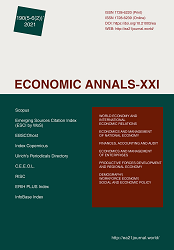Certain issues of the sustainability of public services in municipalities on macro and micro levels, with special regard to the period of the COVID-19 pandemic crisis in Hungary
Certain issues of the sustainability of public services in municipalities on macro and micro levels, with special regard to the period of the COVID-19 pandemic crisis in Hungary
Author(s): Csaba Lentner, Szilárd HegedűsSubject(s): National Economy, Governance, Public Administration, Welfare systems, Management and complex organizations, Economic development, Public Finances
Published by: Institute of Society Transformation
Keywords: Task Performance; Crisis; Centralisation; Decentralisation; Public Services; Public Finances;
Summary/Abstract: The study examines the task performance and the financial management by Hungarian municipalities in two dimensions between 2011 and 2021. On the one hand, the revenues and expenditures, their composition and the debt of Hungarian municipalities are analysed from a macro-financial perspective and in the context of the European Union. On the other hand, in our analysis conducted with a microeconomic approach, we are seeking an answer for the question as to how local governments assess the quality of their own task performance and the changes in their revenues between 2018 and 2021 during a pandemic crisis that has «arrived» at a stabilised status. In the periods of two years before and after the pandemic, we aim to expose substantial effects and their abrupt changes through pieces of empirical research. In our study, we have set up two hypotheses. First, the economic crisis arising in the wake of the COVID-19 pandemic has considerably impaired the municipalities’ task performance and their revenue-earning potential. Our other hypothesis is that the pandemic has had a more dramatic economic impact on larger municipalities. We carried out the macro-financial examination with time series analysis, while the microeconomic analysis was based on a survey, which was mainly assessed with descriptive statistical methods and with the help of variance analysis as a multivariate method. The most important conclusion of the study is that a strong centralisation of a Hungarian type was capable of managing and consolidating the fiscal overspending before 2010 and the financial crisis of 2007 and 2008 simultaneously, but in the case of an exogenic crisis it considerably decreases the responsiveness and resilience of municipalities.
Journal: Економічний часопис - ХХІ
- Issue Year: 190/2021
- Issue No: 5+6 (1)
- Page Range: 149-161
- Page Count: 13
- Language: English

